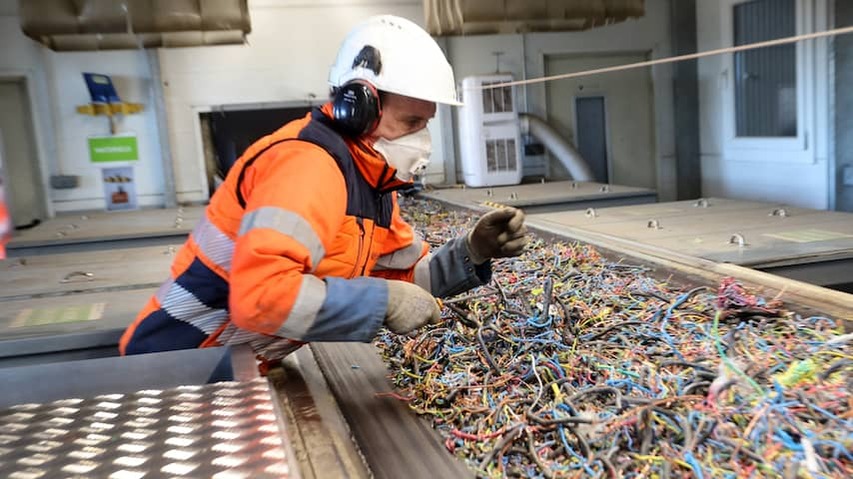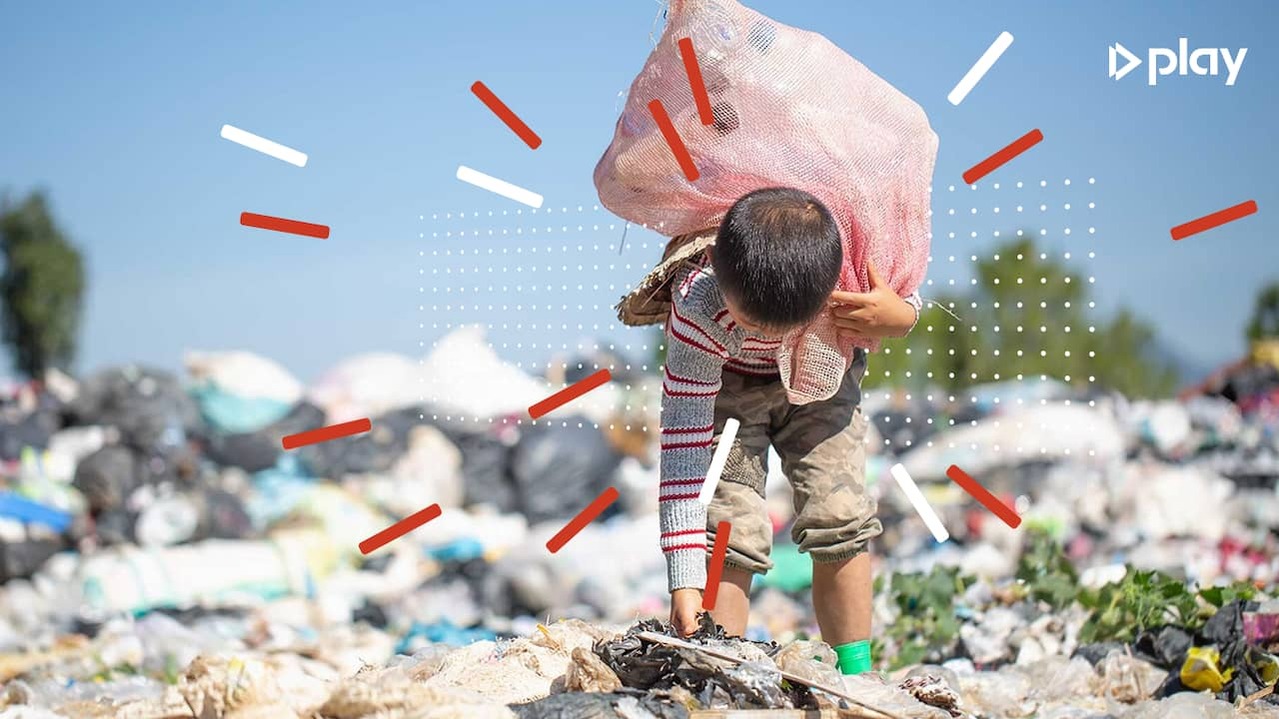
While plastic recyclers are collapsing in droves, the cabinet is scrapping measures to encourage the use of recycled plastic. The sector is now responsible for devising policies that lead to sustainability. “Otherwise, the entire recycling sector will be bankrupt in two years.”
Packaging company LC Packaging also notices that the use of recycled plastic has not really taken off. Customers can already purchase more sustainable large packaging for their potatoes, medicines, or building materials. “But those are more expensive and therefore almost impossible to sell,” says Head of Sustainability Lotte Mastwijk.
Only a small percentage of customers appear willing to pay the 9 percent surcharge for a bag that is one-third made of recycled plastic. “The vast majority will only move if they have to, or if the prices are the same,” says Mastwijk.
Elsewhere in the chain, companies also feel that it is not yet possible to make plastic ‘circular’. Since last year, more than ten Dutch recycling companies have gone bankrupt. One of LC Packaging’s suppliers, Maastricht-based Healix, had to temporarily shut down production. “That is also very difficult for us,” says Mastwijk. “Soon we will have a shortage of material.”
Hard competition from China
The recycling sector has been in crisis for years, so the Rutte IV cabinet made plans to stimulate the use of recycled plastic. Companies that make the building blocks of plastic from petroleum would have to pay a levy. At the same time, plastic processors would be required to use a minimum amount of recyclate from 2027.
These plans led to complaints from other parts of the sector. The ‘fossil’ plastic producers are already facing fierce competition from China, and an extra plastic tax would not improve that. Industry organizations feared that the Dutch plastic sector would not become more sustainable, but that the packaging would simply be made of foreign, fossil plastic.
That is why the Schoof cabinet suddenly crossed out the planned measures last month. An alternative did not come. Instead, the sector must solve its own problems. In the next six weeks, a so-called ‘circular plastic table’ will try to come up with its own proposal to make the plastic sector more sustainable faster.
And it must also yield something: the cabinet wants the measures to bring in more than 500 million euros annually, just like the scrapped plastic levy. If that fails, there will be a CO2 levy on the Dutch waste incinerators, where a lot of plastic ultimately ends up. They will pass on this tax, which will force all Dutch people to pay a higher waste disposal tax, the waste sector warns.
Back to the Drawing Board
“For many companies, this wavering policy is difficult, because you cannot invest with it,” says Marije Perdon of MVO Nederland, a network of sustainable companies. “If policy that seemed to be coming is crossed out, that doesn’t help. The standard was certainly not perfect, but going back to the drawing board is not either.”
Yet she is hopeful about the discussions that industry organizations, environmental groups, and three ministries are now conducting. According to her, they are sitting around the table with a positive attitude. “It is a super difficult puzzle that we will put together in the coming weeks. Hopefully, we will figure it out.”
Several participants in the plastic table do not want to anticipate the solutions that are being discussed. One possible option is a recycling standard that focuses on the companies that ultimately put packaging on the market, instead of the processors who supply plastic to the packaging companies.
To raise money, it is also an option to pass on a European plastic tax to plastic producers, says researcher Geert Warringa of CE Delft. Now the State pays more than 200 million euros annually to Brussels for the fossil plastic that ends up in the incinerator here. “You could of course also pass something like that on to the sector. Now we all pay for it together.”
The House of Representatives recently called for an investigation into the possibilities of placing these costs on the plastic producers.
 6:18
6:18
‘No Packaging in Packaging’: It can be emarter with plastic
Skepticism About EU Policy
Throughout the EU, rules will apply from 2030 for the use of recycled plastic. For example, soft drink bottles must then contain at least 30 percent recycled material. “But that horizon of 2030 is still too far for recyclers to compete with fossil plastic now,” says Perdon. “If we do nothing, the entire recycling industry will be bankrupt in two years.”
It does not help that the EU is making a retreating movement on some environmental files, says Mastwijk of LC Packaging. For example, the requirements for sustainability reports from companies are being weakened. “You notice that our customers are like: those plastic rules will eventually not be so bad.”
That is why she thinks it is good if the Netherlands takes a pioneering role with its own rules. “Or actually a catch-up role. For example, the recycling sector in Germany is already much better developed. There is also much more support from the government there.”